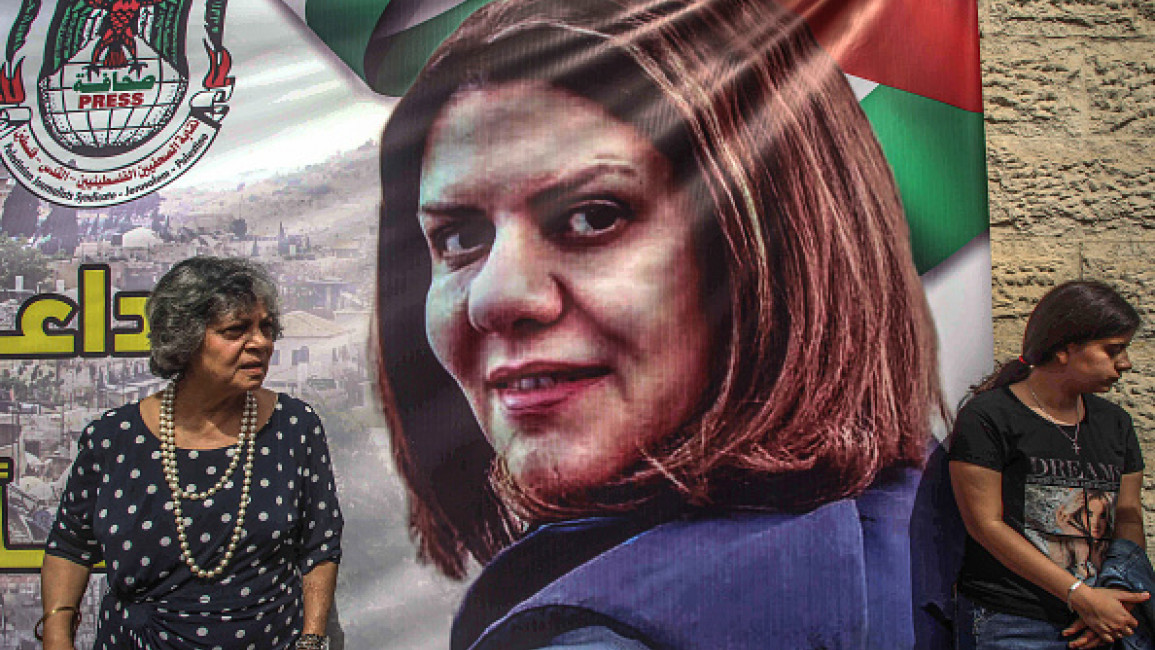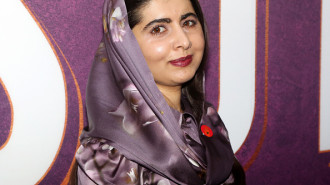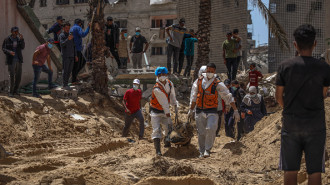Israel 'likely killed' journalist Shireen Abu Akleh, independent investigations find
Several independent groups have launched their own probes into the killing of renowned Palestinian Al Jazeera journalist Shireen Abu Akleh, with one open-source research team said its initial findings lent support to Palestinian eye witness accounts and footage, which show that the 51-year-old journalist was killed by Israeli fire.
The outcome of these investigations could help shape international opinion over who is responsible for Abu Akleh's death, particularly if an official Israeli military probe drags on.
Abu Akleh, a Palestinian-American and a 25-year veteran of the satellite channel, was killed by Israeli forces last Wednesday while covering a military raid in the Jenin refugee camp in the occupied West Bank. She was a household name across the Arab world, known for documenting the hardship of Palestinian life under Israeli rule, now in its sixth decade.
Secretary of State Antony Blinken on Sunday said he had spoken to Abu Akleh's family to express condolences and respect for her work "as well as the need to have an immediate and credible investigation" into her death.
Palestinian officials and witnesses, including journalists who were with her, say she was killed by army fire. The military, after initially accusing Palestinians of being responsible, later backtracked and now say that it's "very likely" that Abu Akleh was killed by Israeli gunfire.
Israel has called for a joint investigation with the Palestinians, saying the bullet must be analyzed by ballistics experts to reach firm conclusions. Palestinian officials rejected the request following staggering evidence of Israeli cover-ups. Palestine, however, has invited other countries to join the investigation.
Human rights groups say Israel has a poor record of investigating wrongdoing by its security forces.
Over the weekend, Bellingcat, a Dutch-based international consortium of researchers, published an analysis of video and audio evidence gathered on social media. The material came from both Palestinian and Israeli military sources, and the analysis looked at such factors as time stamps, the locations of the videos, shadows and a forensic audio analysis of gunshots.
The group found that while Palestinians and Israeli soldiers were both in the area, the evidence supported witness accounts that Israeli fire killed Abu Akleh.
"Based on what we were able to review, the Israeli soldiers were in the closest position and had the clearest line of sight to Abu Akleh," said Giancarlo Fiorella, the lead researcher of the analysis.
Bellingcat is among a growing number of firms that use open source information, such as social media videos, security camera recordings and satellite imagery, to reconstruct events.
Fiorella acknowledged that the analysis "cannot be 100 percent" certain without such evidence as the bullet, weapons used by the army and GPS locations of Israeli forces. But he said the emergence of additional evidence typically bolsters preliminary conclusions and almost never overturns them.
"This is what we do when we don’t have access to those things," he said.
The Israeli human rights group B’Tselem said it too is conducting its own analysis. The group last week played a key role in the Israeli military’s backtracking from its initial claims that "Palestinian gunmen" appeared to be responsible for her death.
A B’Tselem researcher went to the area and took a video showing that some "armed Palestinians" were approximately 300 meters away from where Abu Akleh was shot, separated by a series of walls and alleyways.
Dror Sadot, a spokeswoman for the group, said B’Tselem has begun gathering testimonies from witnesses and may attempt to reconstruct the shooting with videos from the scene. But she said at this point, it has not been able to come to a conclusion about who was behind the shooting.
Sadot said any bullet would need to be matched to the barrel of the gun. "The bullet on its own can’t say a lot" because it could have been fired by either side, she said. "What can be done is to match a bullet to the barrel," she said.
Meanwhile, Palestinians have been highly critical of Israel's requesting of the bullet, due to the "fake" narratives pushed out by the government following fury over the journalist's killing.
The Israeli military did not respond to interview requests to discuss the status of its probe.
In the meantime, Israeli police over the weekend launched an investigation into the conduct of the officers who assaulted the mourners at Abu Akleh's funeral, causing the pallbearers to nearly drop her coffin.
Newspapers on Sunday were filled with criticism of the police and what was portrayed as a public relations debacle.
"The footage [from Friday] documented a shocking display of unbridled brutality and violence," commentator Oded Shalom wrote in the Yediot Ahronot daily.
Nir Hasson, who covers Jerusalem affairs for the Haaretz daily, said the problems run much deeper than Israel's image.
"This was one of the most extreme visual expressions of the occupation and the humiliation the Palestinian people experience," he wrote.



